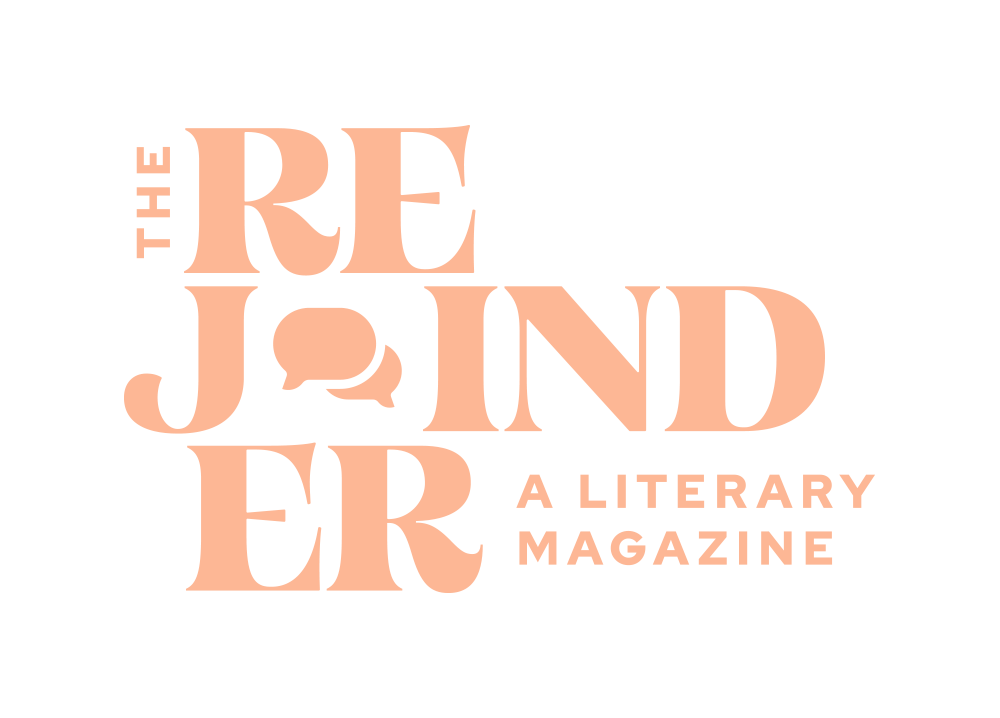4 Questions with Ryleigh Wann
Last week, we published two poems from Ryleigh Wann, “Cataloguing” and “Portrait with Rolled Cigarettes in an Altoids Tin.” Emily Lowe spoke with Wann about grief, form, and Sylvia Plath.
The Rejoinder: Both of your poems in this issue touch on a deep sense of grief. Can you talk a bit about how this has fueled your writing and how writing about these topics has shaped your own personal relationship with loss?
Ryleigh Wann: This is such a powerful question, thank you for asking it. I think it boils down to me being someone who takes a long, long time to process things, and my most natural response to processing grief is to write about it. I have always had a fear of forgetting things—I try to journal, but then I won’t journal for months, which makes me anxious that I’m not journaling, and fear that I won’t remember the things I want to. Something that should be therapeutic feels stressful to me, and I eventually found that writing poetry was my way to write micro-memories of people or places, and a lot of them naturally developed into elegies. This helped me come to terms with the fact that death is just another part of life, but that ache never really goes away. It’s something I’m always returning to in one way or another.
TR: Something I love about your poetry is the variety of forms it inhabits. How did you determine these poems’ shapes?
RW: Line breaks were tricky for me for a long time, and I love how a prose poem can both feel drenched in imagery and narrative, but also hypes up urgency while reading it. I love a rambling, mess of a poem, like someone is talking your ear off over a shared cigarette. “Portrait” started as my attempt at a ghazal using the word “God” to end the lines. It somehow shifted into tercets, which felt holy to me, which felt accurate to who it was written about. Someday I’ll try another stab at fixed forms, but I’m also very stubborn and don’t like to be told what to do, which is my current beef with fixed forms.
TR: You’ve mentioned to me your time researching and writing about Sylvia Plath. Her confessional style rings in these poems, too. How do you feel like your work is in conversation with confessional poetry? In what ways do you feel like you lean into or away from it?
RW: I think when I was first reading and writing poetry it was no surprise I was drawn to Plath, which led to me reading Anne Sexton—I admired the morbid curiosities and feminist topics they were writing about, which for their time were very radical subjects and images. They were both pioneers for writing confessionally and about the more depressing aspects of being a woman and I fell, almost obsessively, into their work. They felt a desire to cross a line in poetry which was influential to me when I was first writing poems as a teenager (angsty tumblr shit, mostly). Writing from my experience and perspective is what I’m drawn to, which I think is true for most poets—we are often writing about the same thing over and over again. I remind myself of something the poet Mark Cox once told me about how poetry isn’t fact or fiction, it’s a poem. I’m trying to utilize that and become more comfortable with exploring new territories in my writing and lean away from the confessional through persona poems and writing from a perspective other than my own.
TR: What's exciting to you in poetry right now? Who are you reading?
RW: Lately I’ve been obsessed with voice in poetry. Richard Siken’s Crush has been on my mind since I first read it a year ago—the entire collection is written in a voice of panic. It’s gorgeous and scary, like you’re mid-air and waiting for the drop. Other recent reads have been Benjamin Garcia, Lisa Hiton, and Sarah Ghazal Ali. I’ve finally jumped into the depths of Joan Didion’s work, so it’s been nice to read more prose in tandem with poetry.

